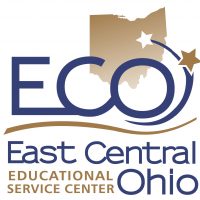Miltary-Connected Youth
Orientation
Resources for Military-Connected Youth
- Military Child Education Coalition (MCEC): The mission of MCEC is to ensure inclusive, quality educational opportunities for all military-connected children affected by mobility, transition, deployments, and family separation.
- DoDEA: This Educational Partnership provides outreach to LEAs to support academic achievement and positive educational opportunities outcomes for military children.
- Tutor.com: Tutor.com is a 24-hour homework hotline free for Military-Connected Youth. Good for grades 4 – 12, it personalizes student support, supports student achievement, builds confidence, covers 40+ subjects with test prep, and is easy to use.
- March2Success: March2Success is an online, self-paced course designed to improve student performance on standardized tests while enhancing student Math, Science, Language Arts and Stem skills.
Explore Connections
- Ohio Military Kids (OMK) is a collaboration between the Ohio National Guard and The Ohio State University’s 4-H Youth Development Program. The goal is to create community support networks for Military Connected Youth when they experience a deployment. Programs are intended to let Military-Connected Youth know they are not alone and provide them with the tools to cope with the stresses involved with being part of a military family. Programs include Hero Camps, Troop, and Family Camps, Youth and Teen Camps, Teen Leadership Camp, and Parent Workshops. Contacts: Kayla Oberstadt, OMK, oberstadt.1@osu.edu; Andrew Seward, Ohio National Guard Youth Program, andrew.j.seward.ctr@mail.mil
- Military OneSource: Military OneSource is a Department of Defense program that provides free services to all members of the military, regardless of branch or component. Some of the services include NonMedical Counseling, Health & Wellness Coaching, Education Consultations, and Special Needs Consultations. Contact – (800)-342-9647
- Sesame Workshop (and Sesame Street for Families): Provides much-needed support and practical education through Talk, Listen, Connect, a multiphase outreach initiative to help young kids through deployments, combat-related injuries, and the death of a loved one.
- Safe is Strong: This site is designed to support military families with young children by helping families learn about family health and safety. The resources provided on the site address several components of family safety,including the Home Physical Environment, Access to Resources, Parental Mental Health, Healthy Parenting Practices, Safe Parenting Practices and Home Safety Practices
- Our Military Kids: Our Military Kids gives grants up to $300.00 per child per deployment, deployment must be out of the country. The money can be used for a variety of things, sports camps, tutoring services, dance classes, and so on.
Family Focus
- United Through Reading: United Through Reading connects military families who are separated – for deployment or military assignment – by providing the bonding experience of shared storytime.
- National Military Family Association: Provides information and resources related to services and programs for military families.
- Child Care Aware: Child Care Aware of America (CCAoA) works with a national network of child care resource and referral agencies and other partners to ensure that all families have access to quality, affordable child care. CCAoA also provides child care assistance for military families through Fee Assistance and Respite Child Care Programs that have served more than 150,000 families and worked with more than 60,000 child care providers over nearly two decades.
- Department of Air Force CYP: The Department of the Air Force Child and Youth Programs assists military and civilian personnel in balancing the competing demands of the mission and family life by catering programs and services for eligible children and youth from birth through 18 years of age.
Purple Star Award
- The Purple Star Award recognizes schools that show a major commitment to students and families connected to our nation’s military. Schools that earn the award will receive a special Purple Star recognition to display on site.
- A school will be honored with the Purple Star Award if it completes all the required activities, plus one optional activity,The application season typically opens November 1 and closes on December 15
- Information Page
- Military Family Liaison Role and Responsibilities
- Application
Military Interstate Children’s Compact Commission (MIC3)
The Council of State Governments (CSG), in cooperation with the US Department of Defense, drafted this Interstate Compact. The goal of the Compact is to replace the widely varying policies affecting transitioning military students. While the Compact is not exhaustive in its coverage, it does address the key issues encountered by military families: eligibility, enrollment, placement and graduation. Children of active duty members of the uniformed services, National Guard and Reserve on active duty orders, commissioned officers of the National Oceanic and Atmospheric Administration (NOAA) and the United States Public Health Service (USPHS), and members or veterans who are medically discharged or retired for one year are eligible for assistance under the Compact. The Compact also covers students of members who perish on active duty for a period of one year following their death.
- Military Interstate Children’s Compact Commission (MIC3): The MIC3 supports the timely enrollment of students in schools during any point of the academic year. It supports the transfer of school records and eliminates barriers due to variations in local districts and states.
State Commissioner – Pete LuPiba (614)-466-6573, Cell (614)-949-8584 – Pete.Lupiba@obm.ohio.gov - MIC3 at a Glance
- MIC3 Guide for Parents, School Officials and Public Administrators
- Military Interstate Children’s Compact Commission (MIC3): The MIC3 supports the timely enrollment of students in schools during any point of the academic year. It supports the transfer of school records and eliminates barriers due to variations in local districts and states.
